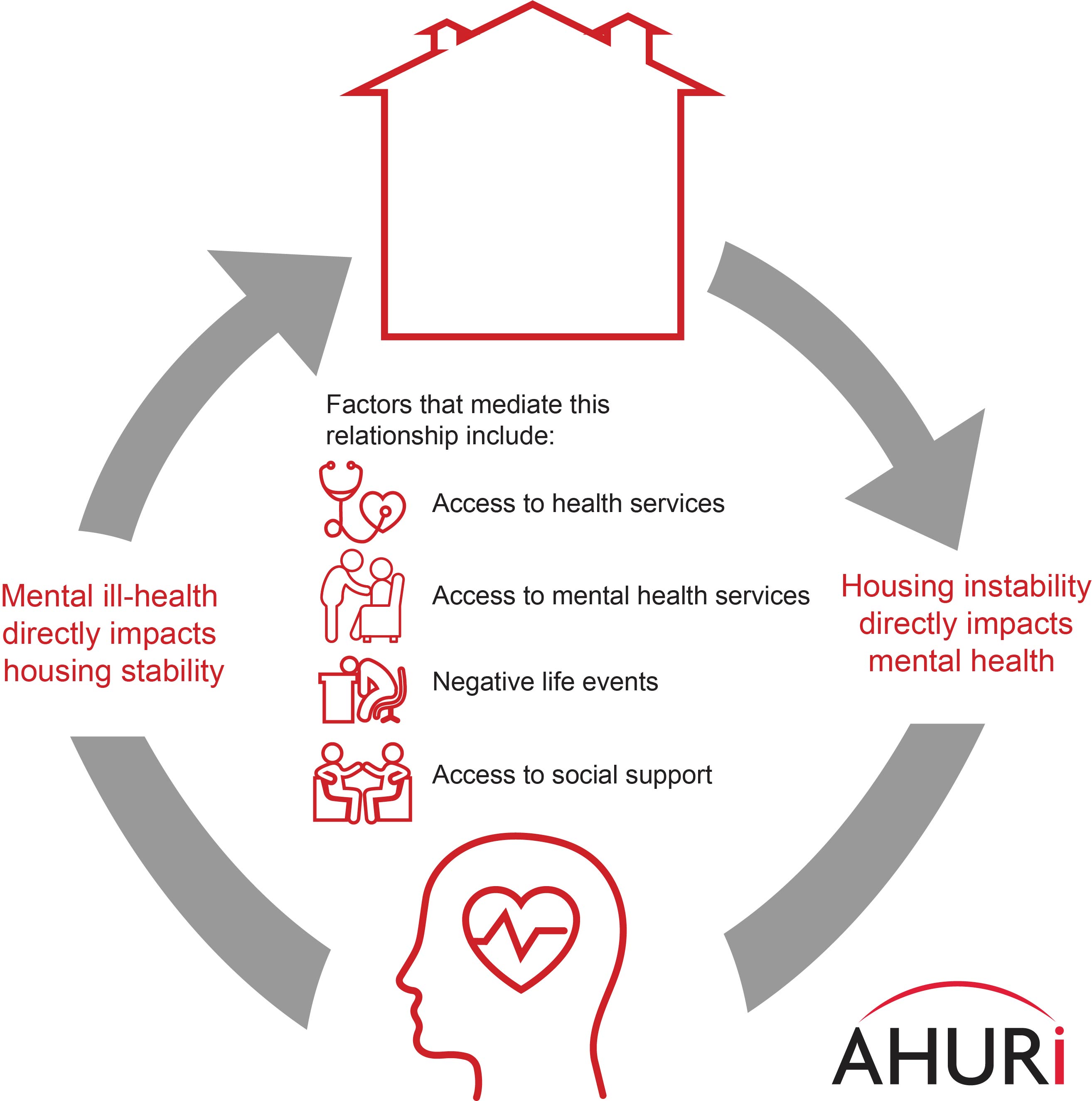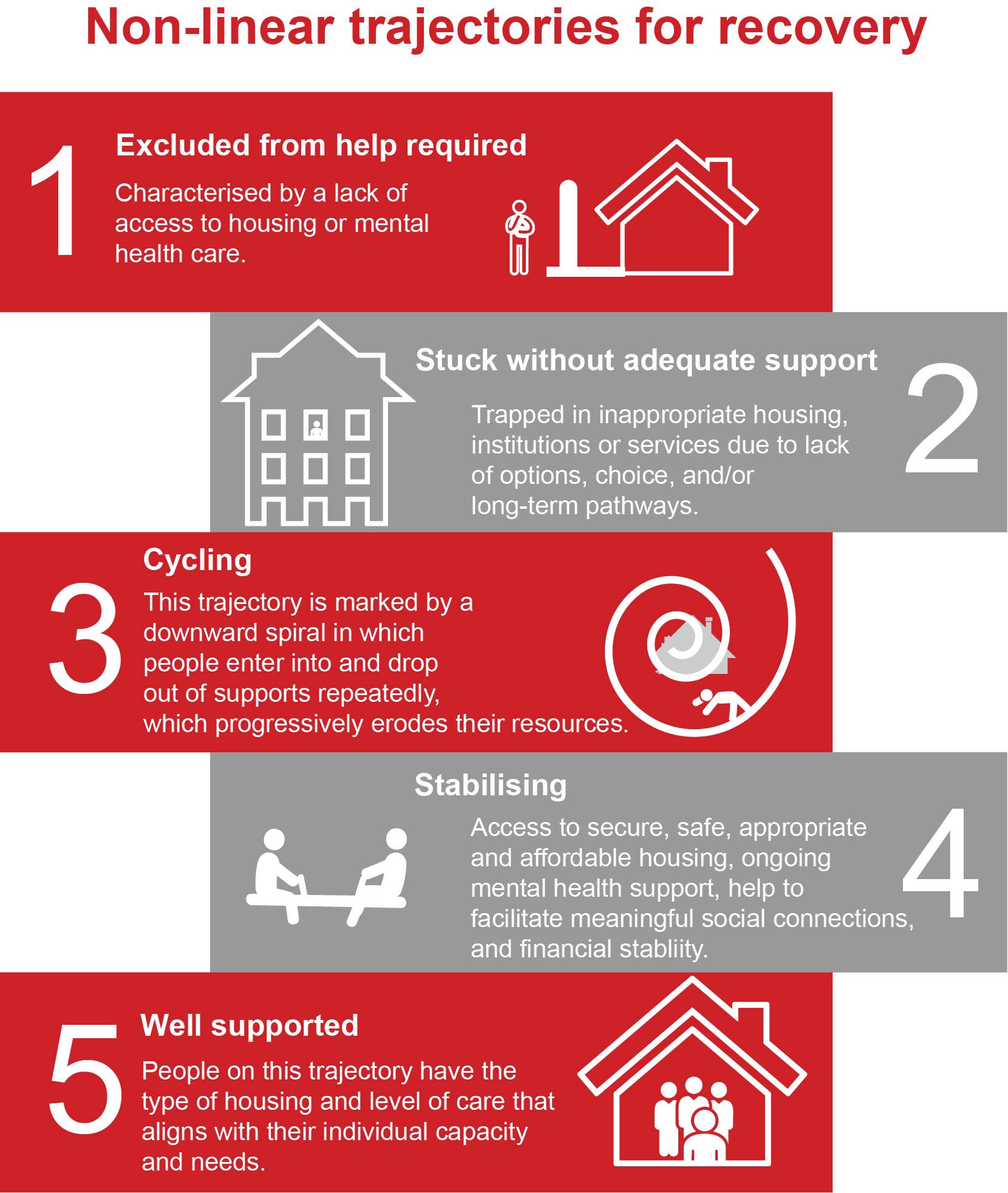
Untreated and deteriorating mental health increases chances of experiencing financial hardship and being forced to move
Examining the relationship between housing and mental health pathways.
19 Feb 2020
In one of the first national studies to examine the relationship between housing and mental health pathways, researchers have found that mental health issues can negatively impact a person’s financial situation, and therefore their housing situation.
According to the research completed by AHURI and Mind Australia, people who experienced severe psychological distress had an 89% increased likelihood of financial hardship within one year and were 28% more likely to be forced to move from their existing accommodation.
‘Our analysis of housing outcomes for people experiencing mental health issues showed that mediating factors, such as social support, having good general health, and accessing mental health and other health services, can reduce the likelihood of housing instability and shorten the length of time a person experiences mental ill-health,’ says lead author of the research, Dr Nicola Brackertz, from AHURI.

People whose mental health deteriorated to the point where they experienced symptoms of anxiety and depression and who did not see a health specialist were 65 per cent more likely to face financial hardship than people who don’t experience deteriorating mental health issues.
Conversely, good social support reduced the likelihood of deteriorating mental health to the point where a person experienced symptoms of anxiety and depression by 33% and shortened the length of time a person was unwell by 6%.
The report also found that people who experienced financial hardship in the past year had a 23% increased likelihood of their mental health deteriorating to the point where they experienced symptoms.
Five overarching housing and mental health trajectories were identified by the researchers: excluded from help required, stuck without adequate support, cycling, stabilising, and well supported.

‘Our research finds that having access to safe, secure, affordable and appropriate housing is the foundation to recovering from mental ill health,’ says report co-author Dr Sarah Pollock from Mind Australia.
‘For people with mental ill health, appropriate housing is housing which allows for control of space; is in a safe neighbourhood close to family and friends; and has good access to public transport, services, and opportunities for work, volunteering or study.’
